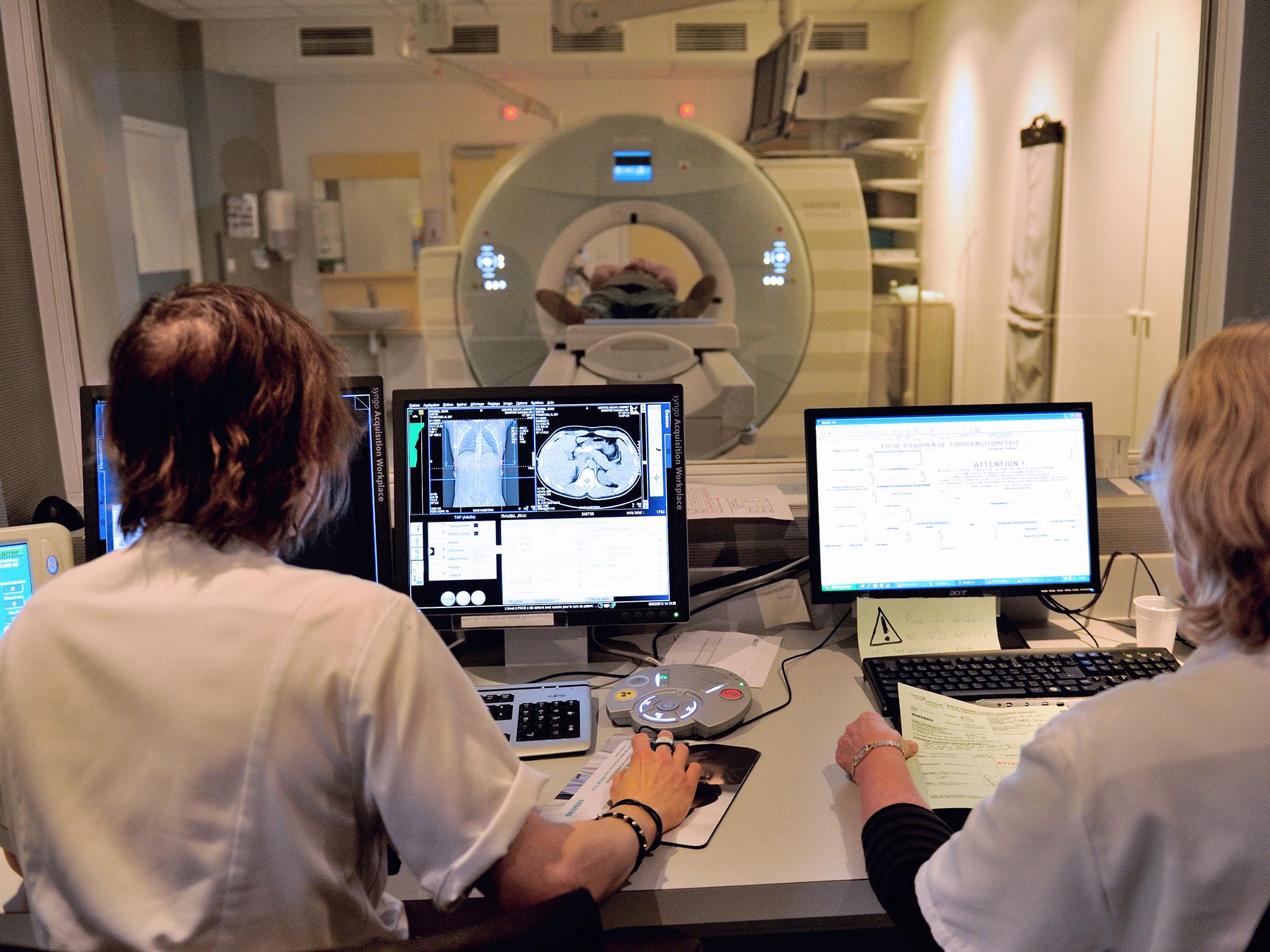Large trial of screening for ovarian cancer fails to show any reduction in deaths
Study followed up women over 16 years and looked at data for more than 200,000 patients

Screening women for ovarian cancer failed to reduce deaths despite identifying the disease earlier in some, a UK study has found.
Experts said the failure of screening to impact on deaths meant they could not recommend the UK adopts a screening programme for ovarian cancer.
The research findings, published in The Lancet, were from a 16-year study looking at data from more than 200,000 women.
The results are a blow to hopes of finding a way to better protect women from the disease with more than 7,000 cases diagnosed and 4,000 deaths every year.
As part of the UK Collaborative Trial of Ovarian Cancer Screening (UKCTOCS) researchers split women into groups using two screening methods. One involved an ultrasound scan and another group had both a scan and a specific blood test designed to spot proteins in the blood that can signify ovarian cancer.
While more women with cancer were found at an earlier stage, ultimately neither group resulted in more lives being save.
Professor Mahesh Parmar, from University College London and a senior author on the paper, said: "There have been significant improvements in the treatment of advanced disease in the last 10 years, since screening in our trial ended.
"Our trial showed that screening was not effective in women who do not have any symptoms of ovarian cancer; in women who do have symptoms early diagnosis, combined with this better treatment, can still make a difference to quality of life and, potentially, improve outcomes.
"On top of this, getting a diagnosis quickly, whatever the stage of the cancer, is profoundly important to women and their families."
The disease is hard to detect in its early stages due to its vague symptoms, such as constipation, bloating, feeling full quickly when eating and back pain.
The trial was designed to see whether the existing screening methods could cut deaths by picking up ovarian cancer earlier, when treatments are more likely to be effective.
Women aged 50-74 were enrolled in the trial between 2001 and 2005 and randomly allocated to one of three groups: no screening, vaginal ultrasound screening, and ultrasound with a blood test.
The blood test measures levels of a protein called CA125 that is often elevated in the blood of women who have ovarian cancer.
The ultrasound scan is used to look for abnormalities in the ovaries.
Around 39 per cent more early-stage cancers were detected through blood test screening, the researchers said, compared to the no-screening group.
There was no difference in the stage of cancers detected in the ultrasound group compared to the no screening group, they added.
Professor Usha Menon, lead investigator, said: "UKCTOCS is the first trial to show that screening can definitely detect ovarian cancer earlier.
"However, this very large, rigorous trial shows clearly that screening using either of the approaches we tested did not save lives.
"We therefore cannot recommend ovarian cancer screening for the general population using these methods.
"We are disappointed as this is not the outcome we and everyone involved in the trial had hoped and worked for over so many years.
"To save lives, we will require a better screening test that detects ovarian cancer earlier and in more women than the screening strategy we used."
Commenting on the research, Michelle Mitchell, Cancer Research UK's chief executive, said: "Trials don't always find the result we had hoped for, but we need long-term studies like this to know whether new tests save lives.
"Cancer Research UK will continue to fund vital research into aggressive forms of ovarian cancer so we can reduce the impact of this disease.
"Screening is for people without symptoms, so it's still important that if you notice unusual or persistent changes to talk to your doctor."
Join our commenting forum
Join thought-provoking conversations, follow other Independent readers and see their replies
Comments
Bookmark popover
Removed from bookmarks